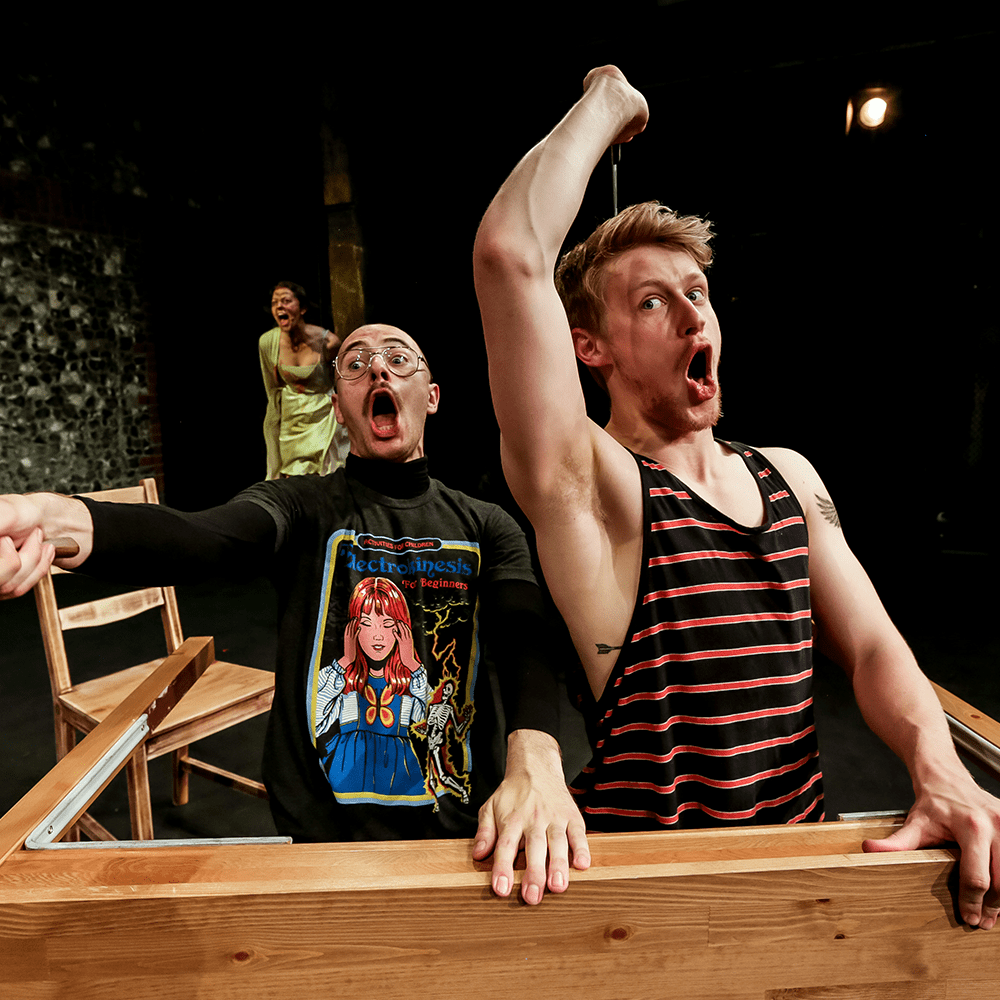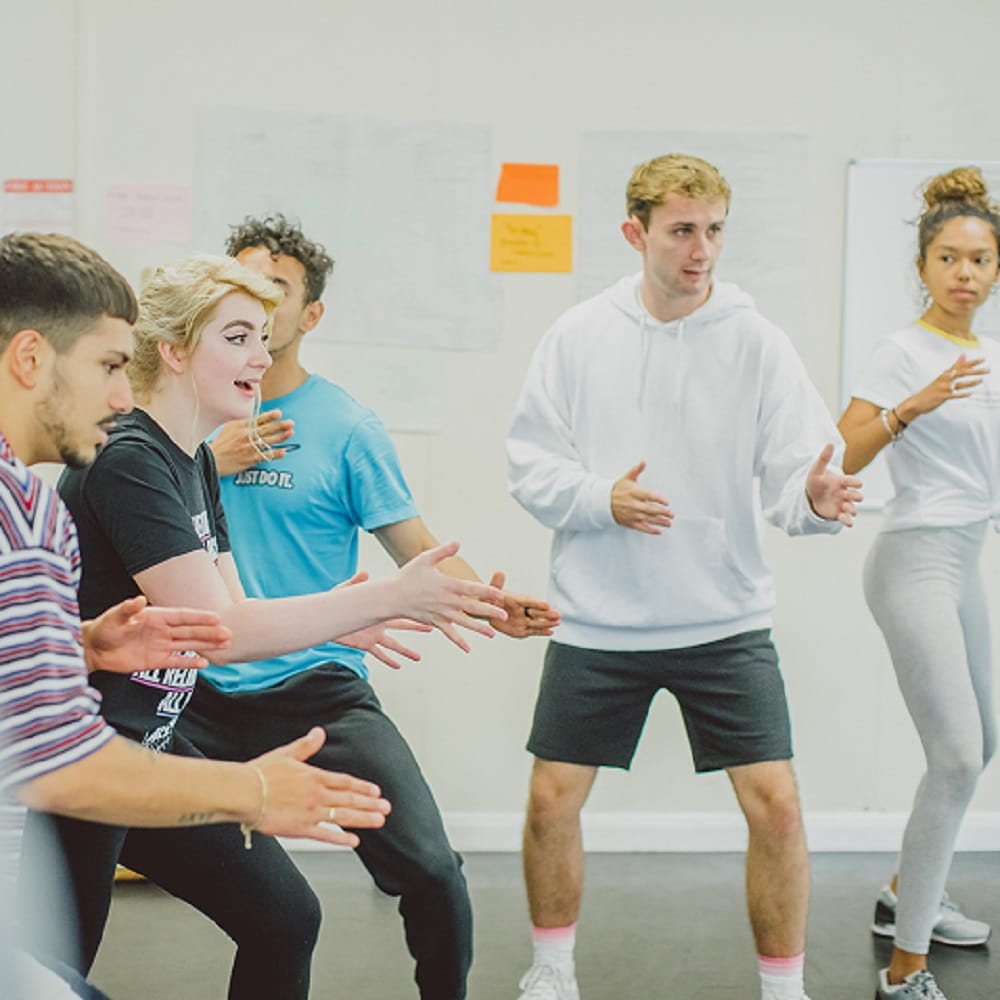Your future
Alumni of the BA Acting and Contemporary Theatre course are participating in the industry not only as actors in theatre, film and TV, but also by staging their own work to audiences worldwide. Recent graduates have gone on to work with major companies such as the National Theatre, Cirque Du Soleil, the Royal Court, the RSC, the Globe and the BBC, as well as for Netflix, Warner Bros, Gecko, Complicite, Frantic Assembly, and Improbable.
Celebrated alumni include Beatrice Grannò (White Lotus), Ami Okumura Jones (My Neighbour Totoro), Jeremias Amoore (No Way Up), Anna Leong Brophy (Shadow & Bone) and Avital Lvova (Daliland)
A highlight of the graduate year is the acclaimed ‘Debut Festival', a unique platform dedicated to staging new work written, directed, produced and performed by students. Many plays have transferred to professional production in Britain and abroad, winning awards such as the Edinburgh Comedy Award, The Stage Best Ensemble, Scotsman Fringe First, Best New Musical and BFI Best Short Film. Transfer venues include the Soho Theatre, Bush Theatre and Manchester Royal Exchange, as well as tours to USA, Australia, South Africa, Mexico, Spain, Belgium, Denmark, Iceland and New Zealand.
In its short history, this course has shaped a number of exciting new practitioners including film and TV actors Beatrice Grannò, Adam Colbourn, Antonia Desplat, Melissa Johns, Lily Newmark, and Adam El-Hagar, writers Charlotte Josephine and Somalia Seaton, directors Bryony Shanahan and Jaz Woodcock-Stewart, Jesse Briton, as well as major theatre companies such as Fat Rascal and Police Cops.








